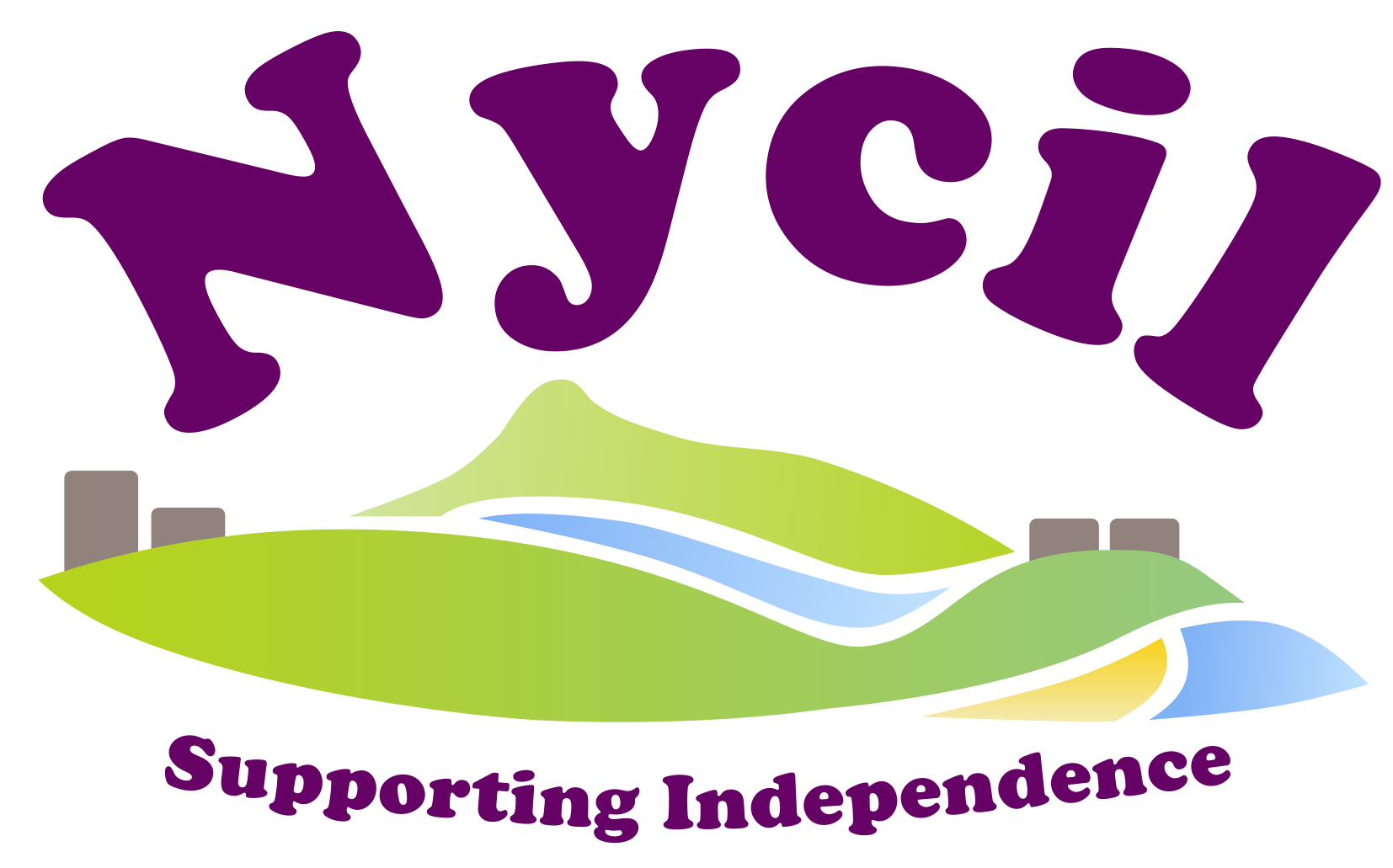About Nycil
Nycil was set up in July 2009, in response to government targets, to cover the North Yorkshire Area and to support and promote the independence of people with disabilities. It offers support to those in receipt of direct payments, personal health budget and even self funders offering assistance and advice in recruiting personal assistants. Nycil also runs a payroll service, offering services to both those receiving direct payments and local small businesses and charities who subscribe to our ethos of inclusion.
As a small non-profit organization, Nycil is able to offer a person centered approach, with each individual’s service tailored to their specific needs, and with support workers and staff who are familiar with each individual’s requirements and situation.
Nycil’s Here to Help recruitment service will help with all stages of recruiting a Personal Assistant. Starting with discussing the personal needs of the client, and working with them to develop a job description and recruitment advert. We will then advertise on behalf of the client, provide assistance and advice with the interview process, and will stay in contact if further assistance or recruitment is required. We can also offer advice and signposting with regards to other employment problems or inquiries.
Nycil’s payroll service will handle all parts of the payroll process, from the initial setup to sending required information to HMRC and managing payments. After the initial setup, payroll will be handled on a four weekly basis. All you will need to do is submit the hours that need to be paid, and we will process the payment and send you the payslips and relevant information. We will also manage statutory pension compliance and end of year reporting.
All of Nycil’s services are offered at competitive rates, and for people receiving direct payments, our fees will be covered by the direct payment.
About Centres for Independent Living
In 2005, as part of an initiative to improve the lives of Disabled People across the country, the government set a target of having a User Led Organisation in each locality modelled on existing Centres for Independent Living (CIL). Examples of services a CIL might be expected provide include:
- Information and advice;
- Advocacy and peer support;
- Assistance with self-assessment;
- Support in using individual budgets (including cash payments) to meet needs;
- Support to recruit and employ personal assistants;
- Disability equality training;
- Consumer audits of local services.
The specific services offered will vary depending on local circumstances, and agreements with the local authority.
A local CIL working in tandem with the local authority has been shown to offer a number of advantages over the local authority operating by themselves. The five key advantages as outlined by a report on User-Led Organizations in the North East (2010) include:
- Delivering the personalization agenda – ULOs provide person-centred services such as information, advice and advocacy support. Research shows that the take-up of direct payments is highest in areas with ULOs.
- Tackling worklessness – ULOs help tackle employment issues by providing volunteering and employment training and support to move socially excluded people into more meaningful activity. By working with ULOs local authorities are also assisting the local economy.
- Reducing health inequalities – ULOs help local authorities to tackle inequalities in health and access to health services. They help local people to navigate health and social care systems, and to enhance their own health and wellbeing.
- Engagement and understanding – ULOs help local authorities to improve their understanding of the impact of their services on local communities. They User-led organisations (ULOs) in the North East- 23 engage with different groups of service users and enable local politicians and senior officers to reach populations/groups that are seldom heard and hard to find. This may result in more effective commissioning of services that better meet the needs of local communities.
- Corporate recognition – ULOs can help local authorities and their partners to become more efficient and deliver results for local people, for example, by improving people’s sense of involvement in the community. This will be reflected in the relevant national indicators and in the Comprehensive Area Assessment of outcomes and prospects for the improvement of the area.
Read More:
The Prime Minister’s Stratergy Unit; Improving the Life Chances of Disabled People (2005)
